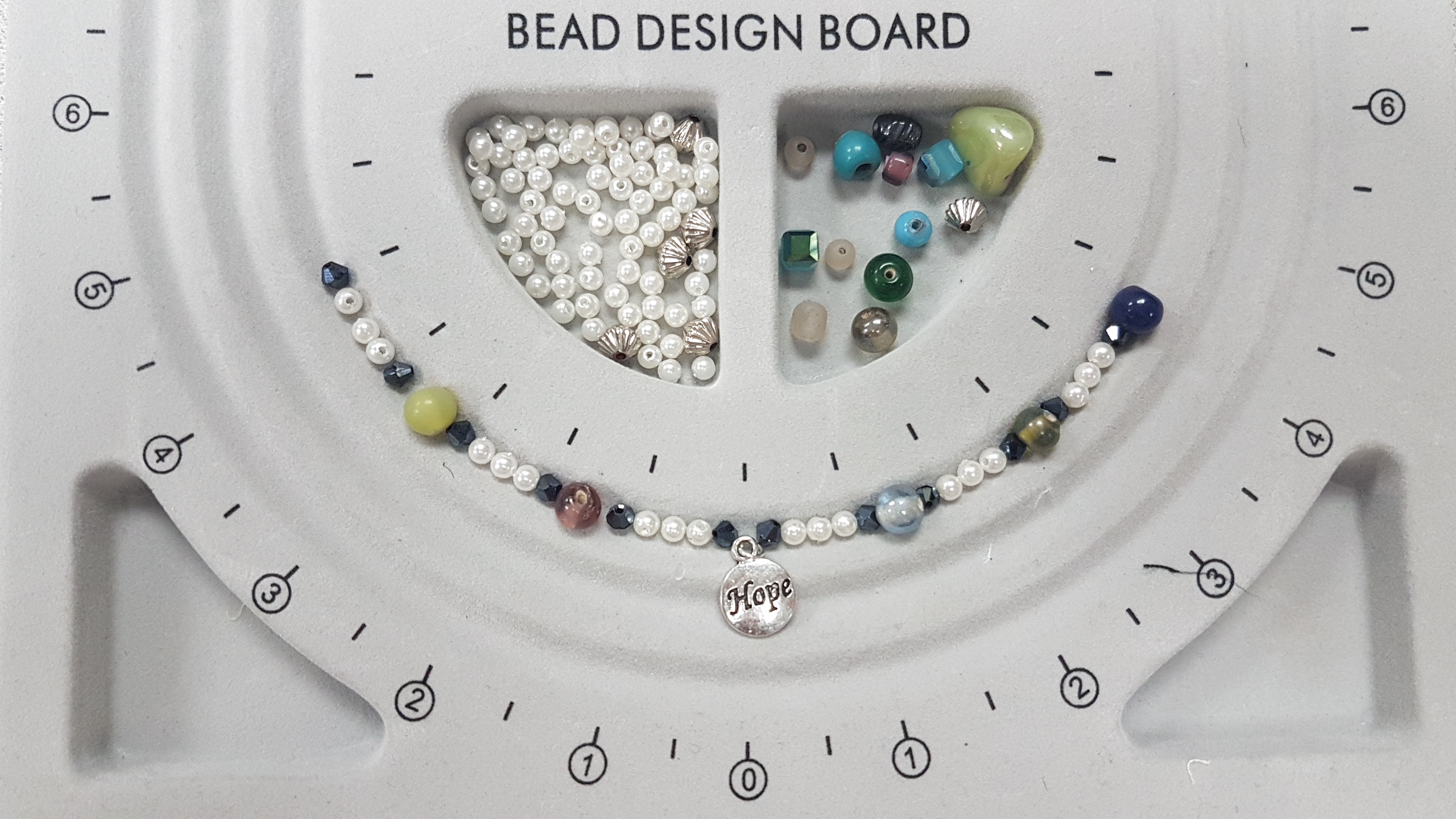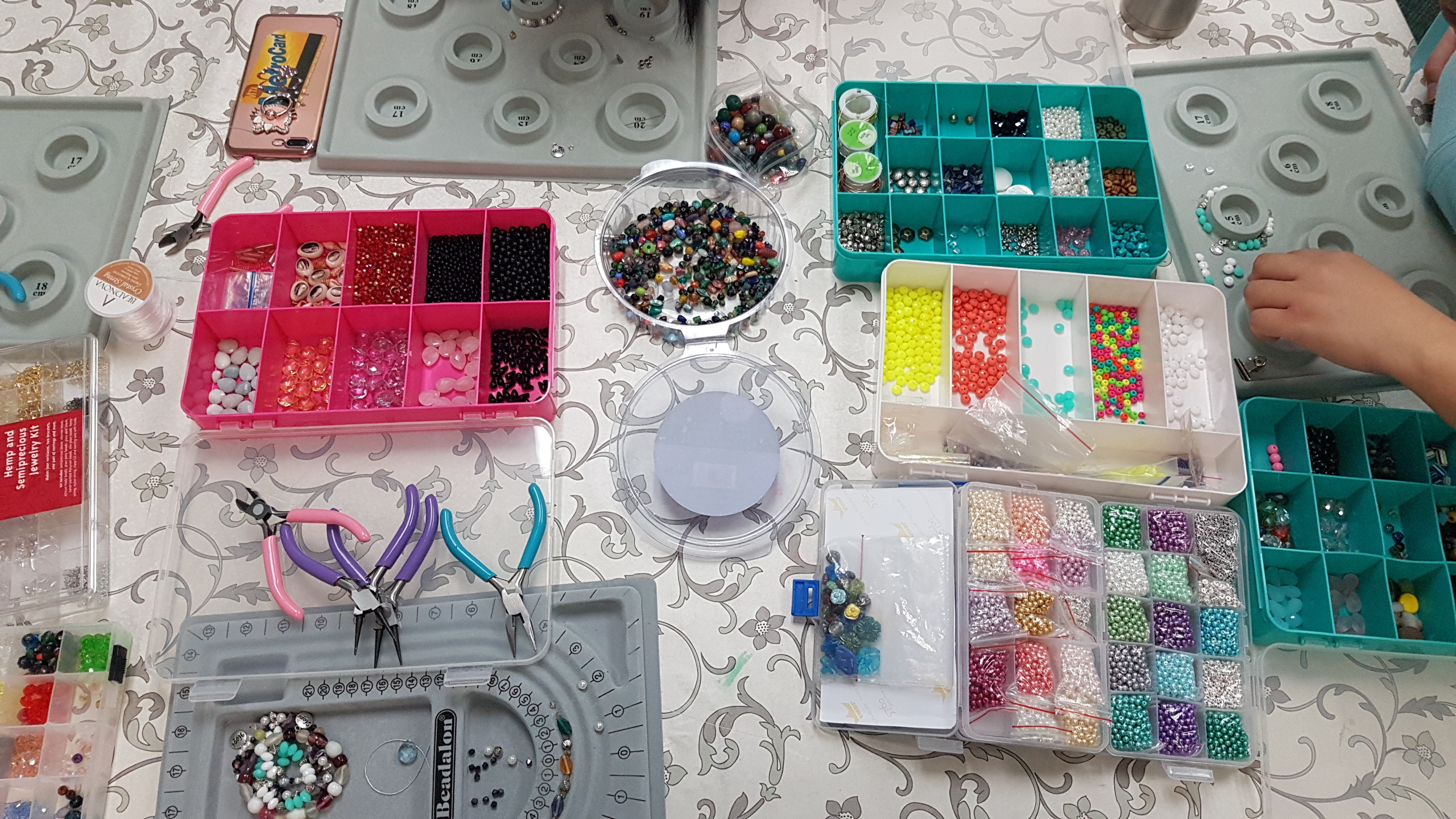
Bridging the expertise of Pratt students and faculty with communities beyond the gates begins with strong partnerships. For six years, the Taconic Fellowship, a program of the Pratt Center for Community Development, has supported projects driven by faculty, students, and staff working together with a variety of community organizations in New York City. Prattfolio looks at some recent Taconic Fellowship projects that have made an impact on Pratt’s neighboring communities.
For Crystal Chen, MPS Creative Arts Therapy ’17, jewelry has more than aesthetic resonance. A piece of adornment can contain facets of compassion, healing, and empowerment. Through a partnership with Garden of Hope, a Queens-based organization serving Chinese-speaking people who have experienced abuse, Chen brought together her therapeutic training and her understanding of the power of art making to create space for reflection and self-care.
Chen first came to Garden of Hope as an intern—the first art therapy intern for the organization, which focuses primarily on case management and counseling—during her time studying at Pratt. Over the course of her art therapy sessions with women there, she noticed an opportunity to introduce a project that might have both emotional and practical significance for the women she was helping to serve. With the support of Dina Schapiro, MPS ’98, Assistant Chair of Creative Arts Therapy and a professor in the program, Chen developed Garden of Gems, a weekly jewelry-making workshop program that would offer participants a framework to process their feelings and a community to create with.
Through the Taconic Fellowship, Chen was able to establish the project partnership with Garden of Hope and lay the groundwork for a program that ultimately served 20 women. Chen sourced materials, set up a space, brought in a local jewelry artist for skill sharing, and even hired someone to help with childcare for mothers who participated. “I sought to make the groups a safe and comfortable space where the women could temporarily release their outside responsibilities, labels, and struggles, and be able to be in the moment,” she says. “For many of these women, to have a space where they could be creative and tune into their own needs was a rare occurrence in their weekly routines.”
Along with the project support, which ensured the program would be consistent and equipped with the necessary resources, Professor Schapiro’s guidance as a partnering faculty member helped Chen establish a foundation of trust with the workshop participants. “Dina’s support helped me to navigate, understand, and better serve the individual needs of the participants,” says Chen.
Throughout the project, Chen also considered how jewelry making could benefit participants in a practical way, providing a sense of economic empowerment as pieces were completed. She and the participants did jewelry tabling in Queens, including at Garden of Hope’s annual gala, with the funds from each piece going directly to each artist, and Chen was heartened by how many people were inspired by the women’s stories and work and were eager to support their efforts.

The value of the work came to transcend monetary figures, however. The participants discovered that their creations were imbued with the stories they would share, the relationships that grew among the group, and the milestones they celebrated together. “I had originally thought many of them would choose to sell their jewelry pieces at the end,” says Chen. “However, many of them opted to keep their pieces because of what the pieces meant to them. The women found that through jewelry they could share their struggles and wear them proudly as a part of them.”
The pieces became talismans of a new personal story. “Part of the project is all about rewriting our narrative,” says Chen, who now holds a full-time position with Garden of Hope and is working with the organization to develop more creative arts therapy groups. “Many of the women have experienced abandonment and rejection, so with Garden of Gems, we seek to change this truth to one of renewal and focus on intrinsic value.”
For Chen, working with a community partner opened up conversations she might not have otherwise had, beyond the classroom and even beyond the workshop. Last year, Chen was invited to present on Garden of Gems at the United Nations Commission on the Status of Women, and she spoke at this year’s conference, representing Garden of Hope. “Engaging with the community challenges students to push their creativity to address real issues,” she says. “I feel like some of the most innovative ideas develop on college campuses and it is amazing when they are able to pass the border of the campus into the community.”
About the Taconic Fellowship
Funded by an endowment from the Taconic Foundation, the Taconic Fellowship is emblematic of Pratt Center’s mission to promote a just, equitable, and sustainable city for all New Yorkers. In the 55 years since its founding, Pratt Center has advanced meaningful community participation in public decision-making and has tirelessly offered technical assistance and policy research in support of affordable housing, environmental sustainability, and equitable economic opportunity. Its three fellowship programs (the Graduate Planning, Made in NYC, and Taconic fellowships) offer financial support to Pratt faculty, students, and staff who seek to engage in community-building work in partnership with community organizations across New York City.
Taconic Fellows partner with community organizations and work with them to shape projects that address local needs. Pratt Center staff members provide administrative support and project oversight to ensure that each Taconic project is implemented in a way that best leverages the creativity, talent, and skills of the Pratt community. Since 2014, 40 Taconic Fellowships have been awarded, engaging 127 fellows from 18 departments in projects with 37 partner organizations throughout the city.
Photos courtesy of Crystal Chen